[Editor’s note: This article contains details related to missing and murdered Indigenous women and youth. It may be triggering to some readers.]
They carried placards, wore photographs of their loved ones on their clothing and spoke the names of missing and murdered Indigenous women as they marched through Vancouver’s Downtown Eastside Tuesday.
Martha Martin, the mother of Chantel Moore, called for Prime Minister Justin Trudeau to speak the names of Indigenous people killed by police and to attend the annual Women’s Memorial March. Moore, a 26-year-old Tla-o-qui-aht woman, was shot dead by a police officer conducting a wellness check in New Brunswick in 2020.
“We saw Justin Trudeau take a knee for George Floyd and he never mentions once our children’s names, whose lives have been taken by law enforcement,” Martin said.
“And I say now we start calling him out and telling him to show up, because now is the time.”
Martin’s call was echoed by several other speakers.
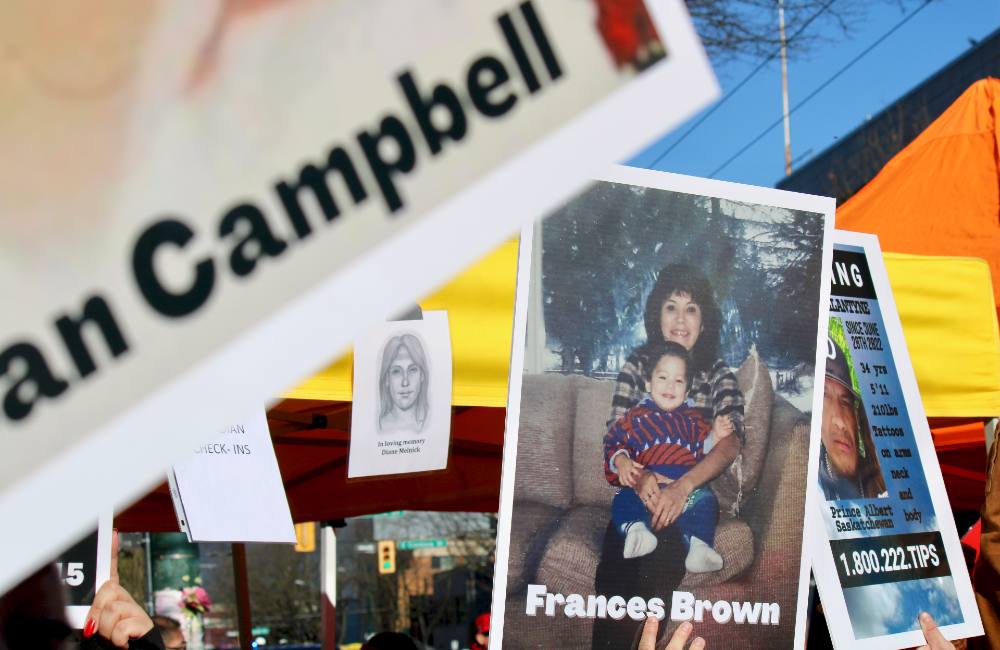
It was the 32nd Women’s Memorial March, which began in 1992 to draw attention to the alarming number of women who were going missing from the neighbourhood. Many of those women were killed by Robert Pickton, a serial killer who was not arrested until 2002.
Maggie Gisle knew many of the women who went missing in the 1980s and ’90s.
“I got off the streets Feb. 13, 1998. I was scared straight because I had so many friends that were missing and I didn’t want to be one of them,” Gisle said.
Gisle, who is Nisga’a, said her parents and all her aunts and uncles had gone to residential school and she and her siblings had been taken into foster care during the '60s Scoop.
Gisles said she now considers Feb. 14 to be the first day of “my new year.”
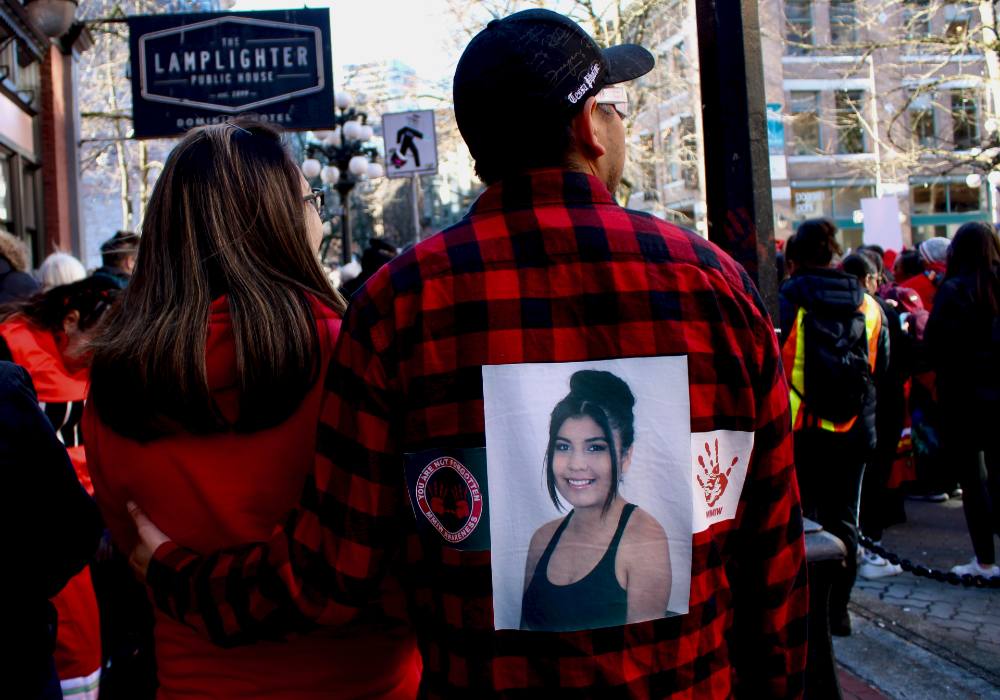
Linda Kay Peters spoke about her mother, who was abducted, sexually assaulted and beaten in the 1950s in a small northern mining town. Peters also spoke about her niece, Shawnee Inyallie, whose body was found near the Fraser River near Delta four months after she went missing in the summer of 2018.
The National Inquiry into Missing and Murdered Indigenous Women and Girls, which issued its final report in 2019, called violence against Indigenous women “deliberate race, identity and gender-based genocide.”
In 2021, the federal government adopted a national action plan on the recommendations of the national inquiry. But advocates say they continue to be frustrated by the slow progress.
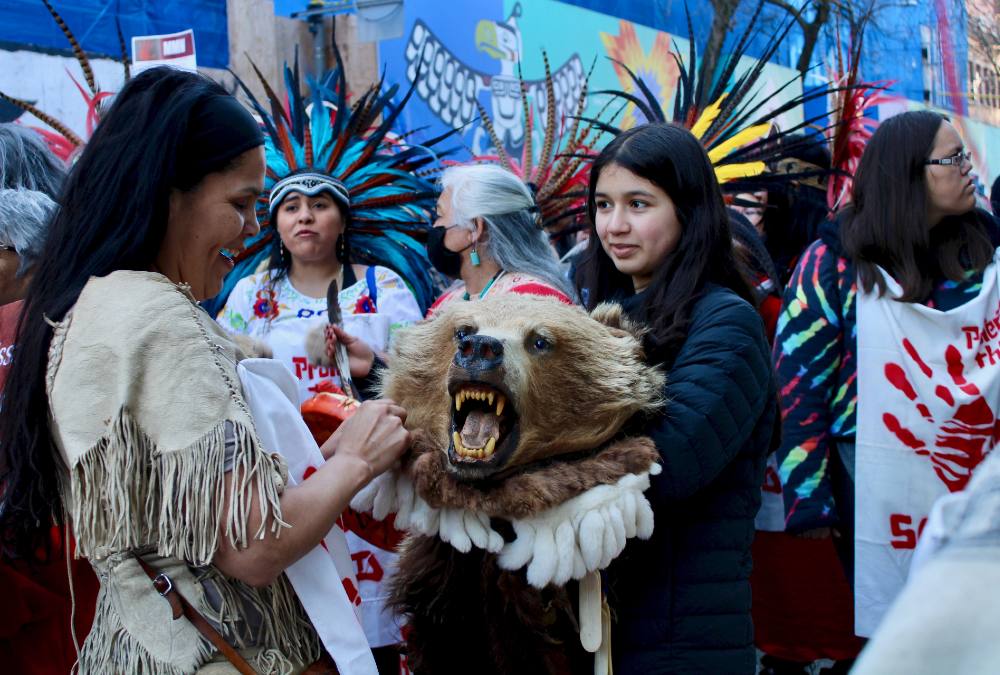
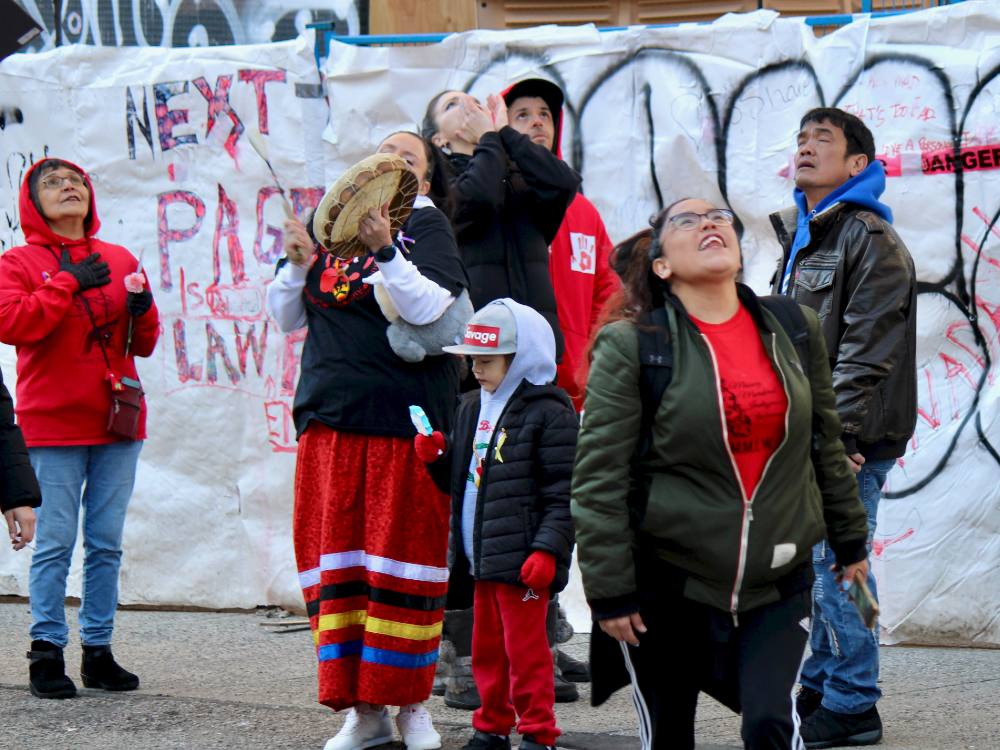
Peters said her mother survived the brutal attack against her in the 1950s, and recently celebrated her 99th birthday.
“My mom survived,” Peters said. “And my mom and Shawnee are my inspiration to go out and speak and try to create as much awareness as I can about our murdered and missing Indigenous women.” ![]()
Read more: Indigenous, Rights + Justice, Gender + Sexuality




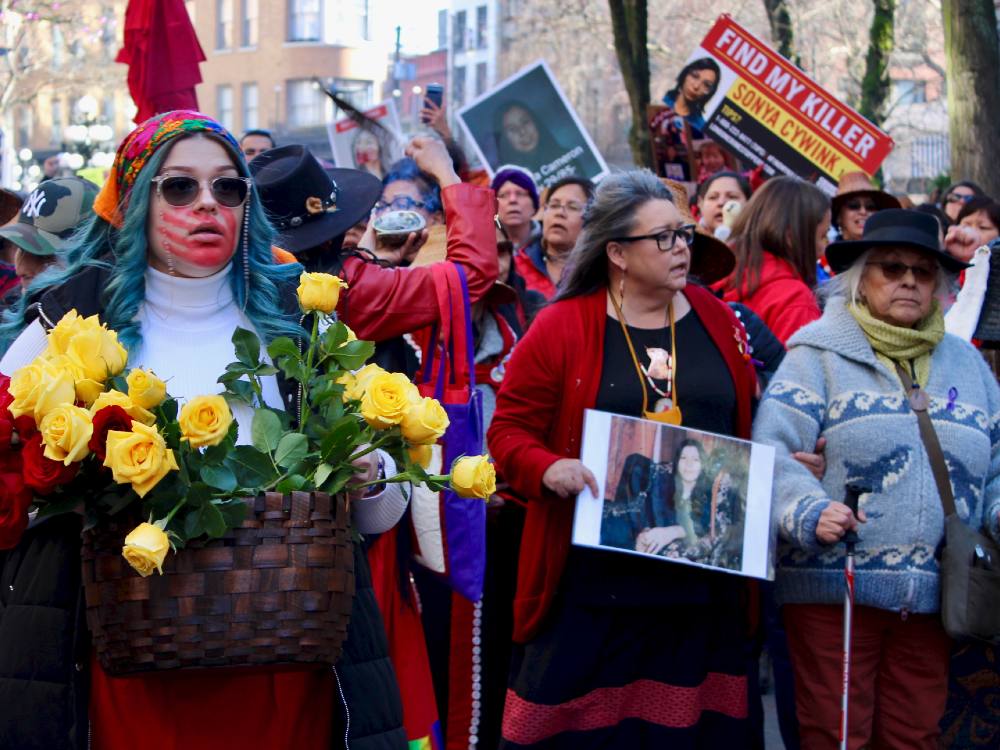
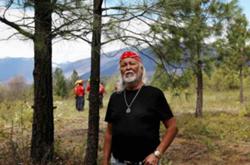

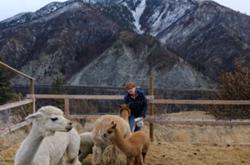









Tyee Commenting Guidelines
Comments that violate guidelines risk being deleted, and violations may result in a temporary or permanent user ban. Maintain the spirit of good conversation to stay in the discussion.
*Please note The Tyee is not a forum for spreading misinformation about COVID-19, denying its existence or minimizing its risk to public health.
Do:
Do not: